Only 29% of Americans think Congress should take their regular August recess
With less than six months left before the midterm elections, Congress is facing a public dissatisfied with its work, potential leadership struggles and the prospect of staying in session in August – a time when members usually go home to deal with their re-election prospects as well as to take a summer vacation.
Americans in the latest Economist/YouGov Poll wouldn’t mind if Congress gave up that time at home and stayed in session a bit longer than usual this year. 43% say it has accomplished less than a typical Congress has at this point in the session, and just 7% think it has done more than usual. A somewhat smaller percentage of Republicans (36%) agree that Congress has done less than it usually does. But Republicans are even more interested in having Congress stay in session through the usual August recess.
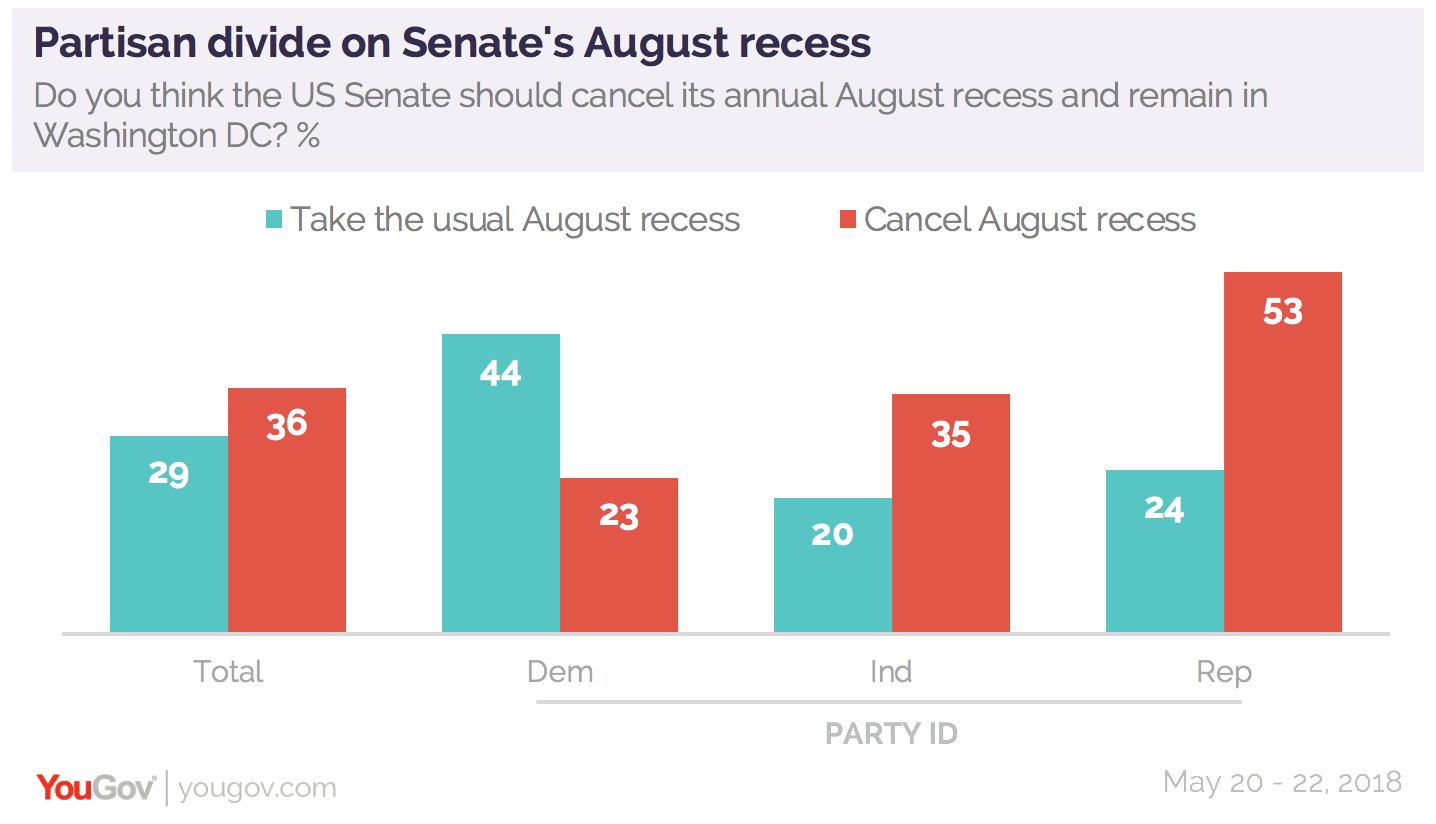
Of course, Democrats have more to lose by missing a month a campaigning: Republicans are defending only nine Senate seats (ten if you include the special election in Mississippi), while Democrats have more than twice as many to try and hold. So while Democrats may dislike the current Congress more, they aren’t sure keeping Congress in session in August is the right approach.
Democrats are quite hopeful about the midterm elections. Two in three believe it’s likely the Democrats will capture the Senate, and about the same proportions think they can win a majority of seats in the House of Representatives. Overall, Americans say it’s more likely these outcomes will happen than that they won’t.
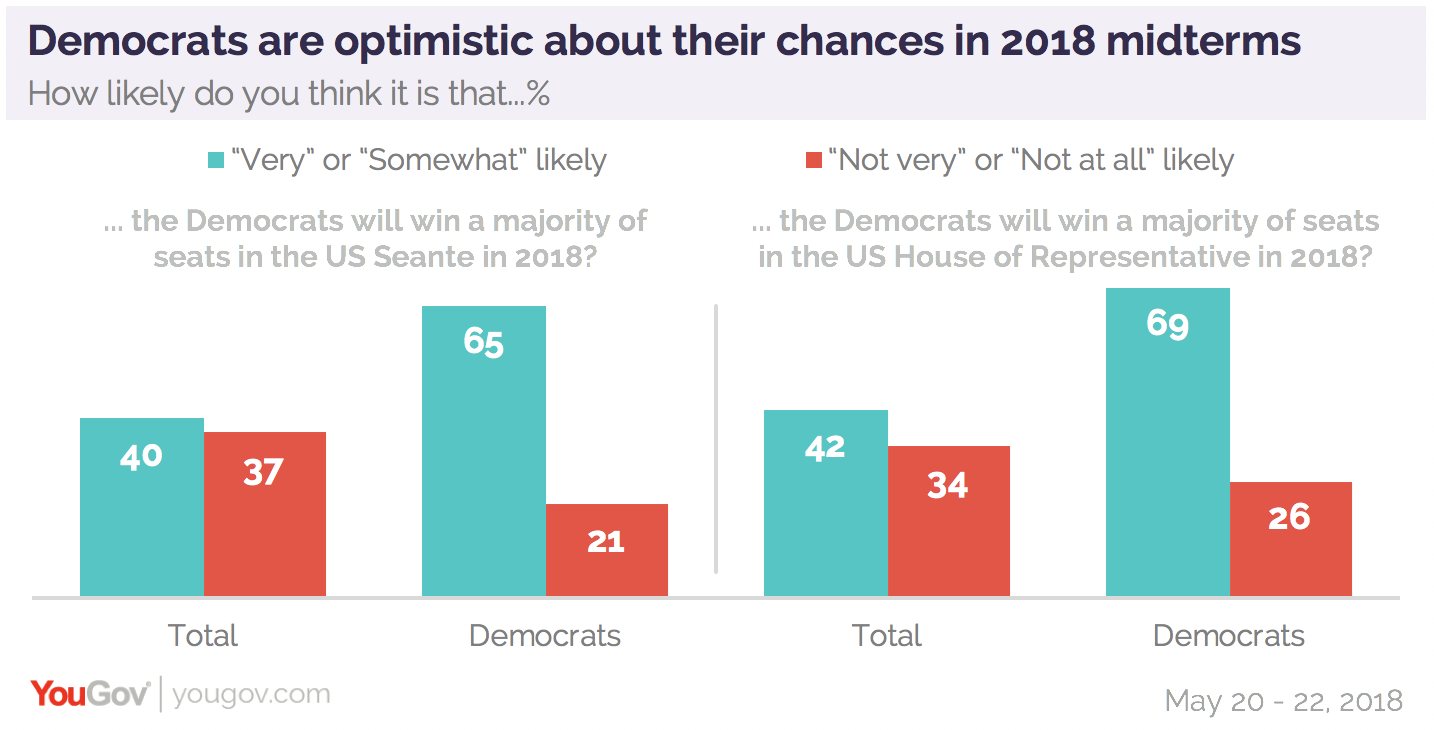
Democratic majorities in both Houses are possible, but difficult to achieve. The state-by-state battles for Senate seats can go either way, and the landscape makes it hard for Democrats to pick up many seats (and several Democratic Senators running are in states Donald Trump carried by wide margins). Meanwhile, in the House, it’s possible that the distribution of seats and composition of district lines mean Democrats could win the most votes nationally, but remain in the House minority. That is what happened in 2012, when Democrats received nearly 1.4 million more votes than Republicans nationally, but won 33 fewer seats. In 2016, Republican candidates carried the national popular vote by about the same margin, but captured 47 more seats than the Democrats.
In this week’s poll, registered voters give the Democrats a five-point margin in the national vote for the U.S. House, 43% to 38%. There is a large undecided vote.
Within each party, there is real disagreement over what to do next. Republican Speaker Paul Ryan’s decision to retire sets up a competition for GOP leadership. Today, just 48% of Republicans approve of how Ryan is handling his job, and a third disapprove. They want his successor to be more conservative, but though they aren’t exactly sure who that successor should be.
When it comes to the Senate, just 12% of Republicans believe Majority Leader Mitch McConnell should remain in the job. Nearly half want some other Republican to take over.
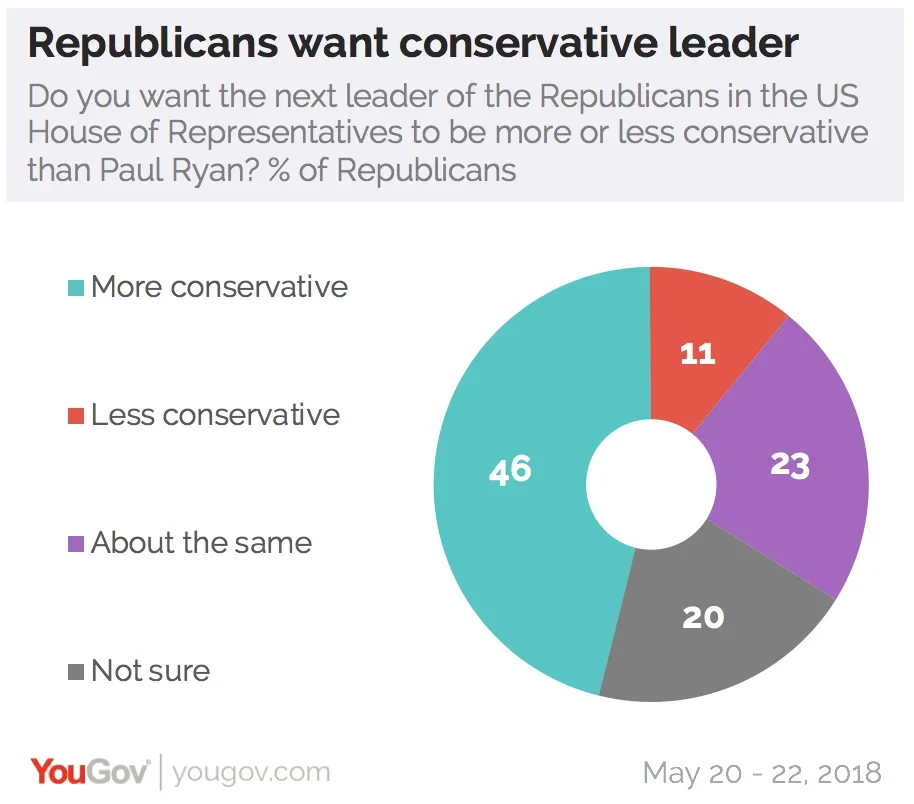
Even Democrats, although they like their own Congressional leadership, aren’t sure they should remain. They divide closely on whether House Minority Leader Nancy Pelosi should stay as leader, and while they give Senate Minority Leader Chuck Schumer a thumbs-up, a quarter would still exchange him for someone else. Male and female Democrats have similar opinions about the first ever woman to be House leader.
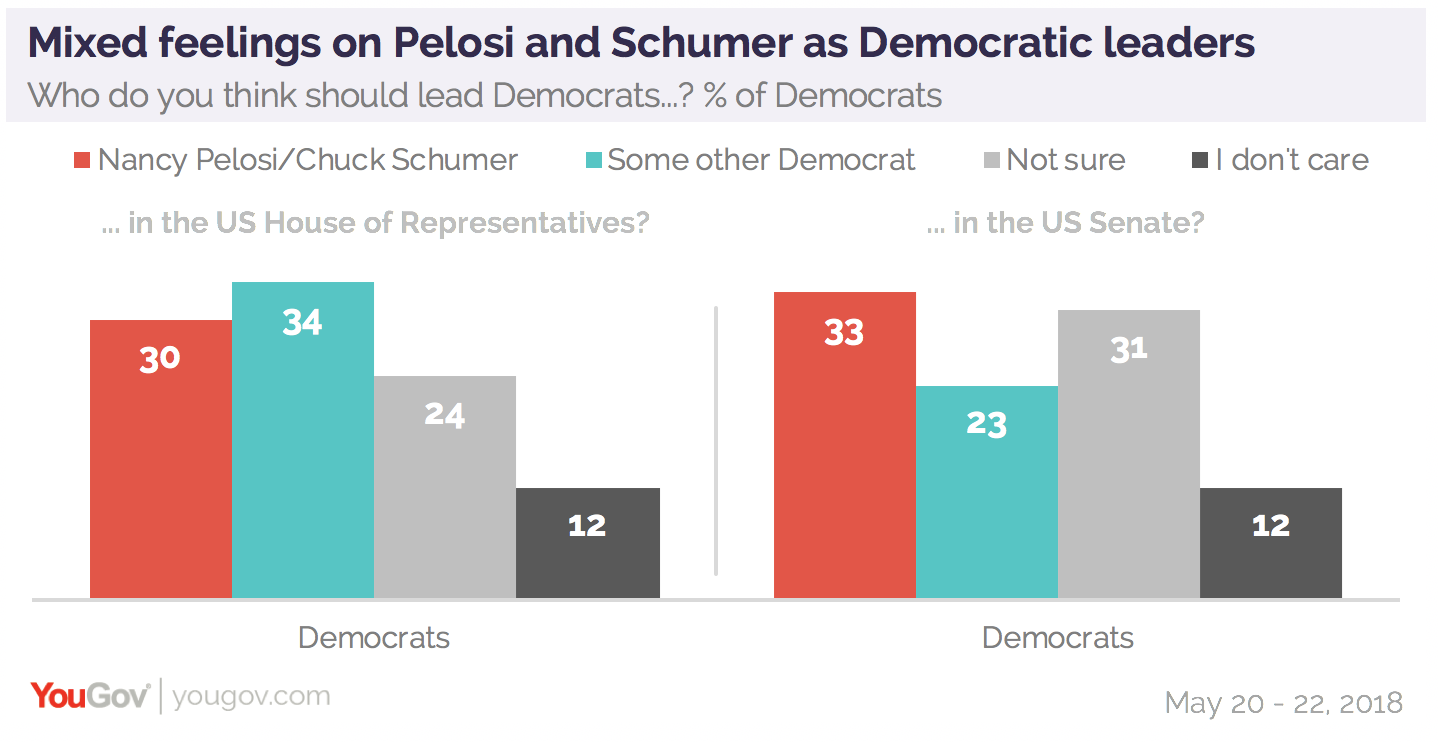 In the coming election, there may be a lot of combativeness. Republicans are looking for candidates who might be more like Donald Trump, and a majority of Republicans say they’d be more likely to vote for candidates who want to end Robert Mueller’s special investigation. Most Democrats would like to vote for candidates who would impeach the President.
In the coming election, there may be a lot of combativeness. Republicans are looking for candidates who might be more like Donald Trump, and a majority of Republicans say they’d be more likely to vote for candidates who want to end Robert Mueller’s special investigation. Most Democrats would like to vote for candidates who would impeach the President.
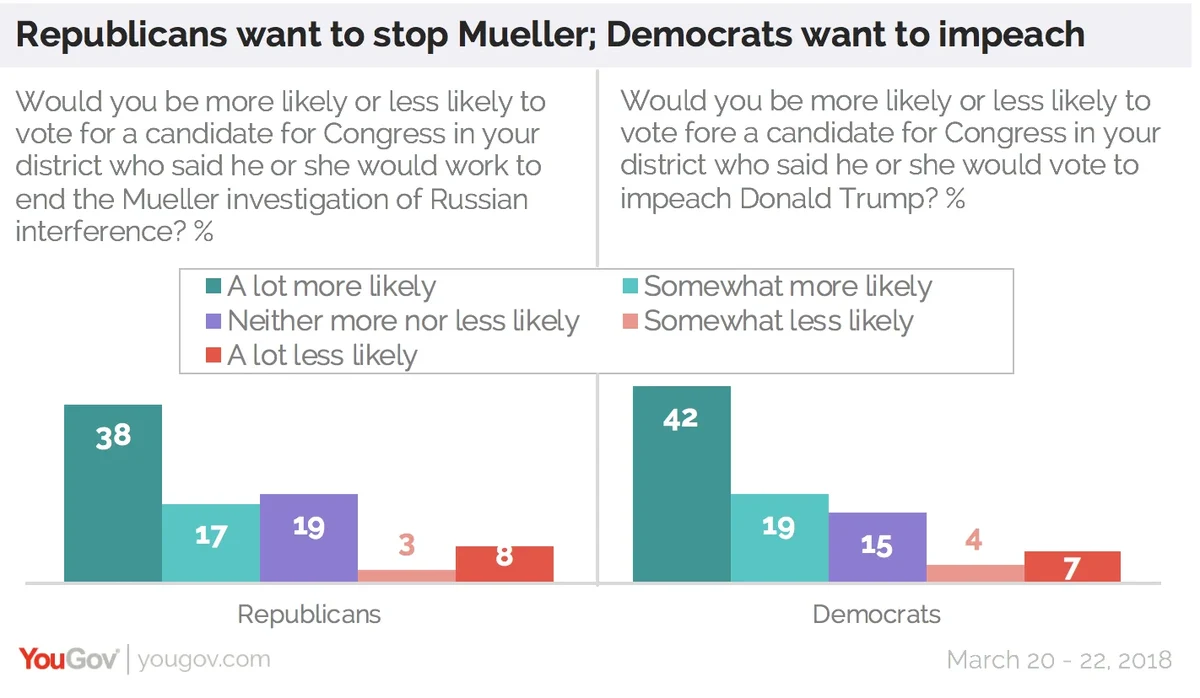
And what will happen if the Democrats do win enough elections in November to control Congress? Americans expect they will be likely to try and impeach President Trump. But they are much less sure they are likely to succeed. Democrats are divided on whether or not an impeachment attempt would work.
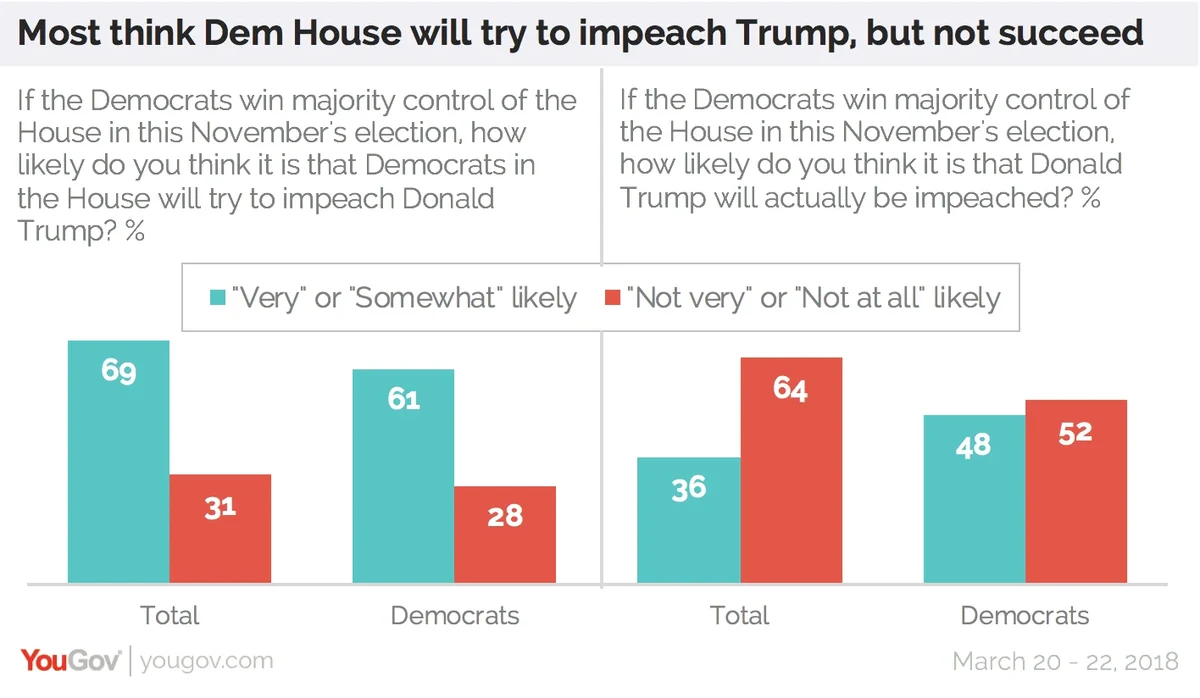
Photo: Getty












